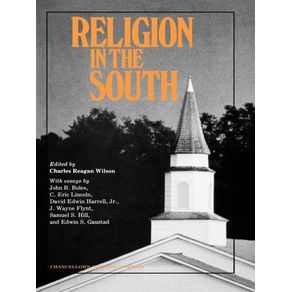Showing the undeniable truth that religion has been a powerful force in creating and maintaining southern regional distinctiveness, this volume of essays by leading scholars explores key aspects of southern religious development, concentrating on the dominant evangelical tradition.
It focuses on crucial time periods--the antebellum years, the late nineteenth century, and the contemporary era--and examines topics that are central to understanding southern religion.
The papers in this volume were presented in 1984 at the annual Porter L. Fortune Chancellor's Symposium in Southern History at the University of Mississippi.
In this study, John B. Boles traces the emergence of the South's evangelical tradition, detailing the transformation of evangelical sects from dissenting outcasts in society to their dominance in the South by the time of the Civil War. C. Eric Lincoln's essay offers a thorough summary of early black religious history, including missionary efforts among the slaves, the extent of a black-white religious culture, the importance of separate black denominations, the "invisible church" of the slave quarters, and the nature of black worship. David Edwin Harrell, Jr. , examines religious diversity in the South, bringing together the experiences of Roman Catholics, Jews, and Protestant sectarians living under the region's evangelical hegemony. Through a case study of the Presbyterian Church in the United States, J. Wayne Flynt marshals evidence that an overlooked social gospel tradition has existed in the South.
In an essay on "Religion and Politics in the South," Samuel S. Hill puts the recent religious-political interaction into historical and typological perspective, arguing for the existence of a unique southern outlook on this topic.
The final paper, by Edwin S. Gaustad, outlines the regional character of American religion, with special attention given to the geographical distribution of religious groups within the South.

